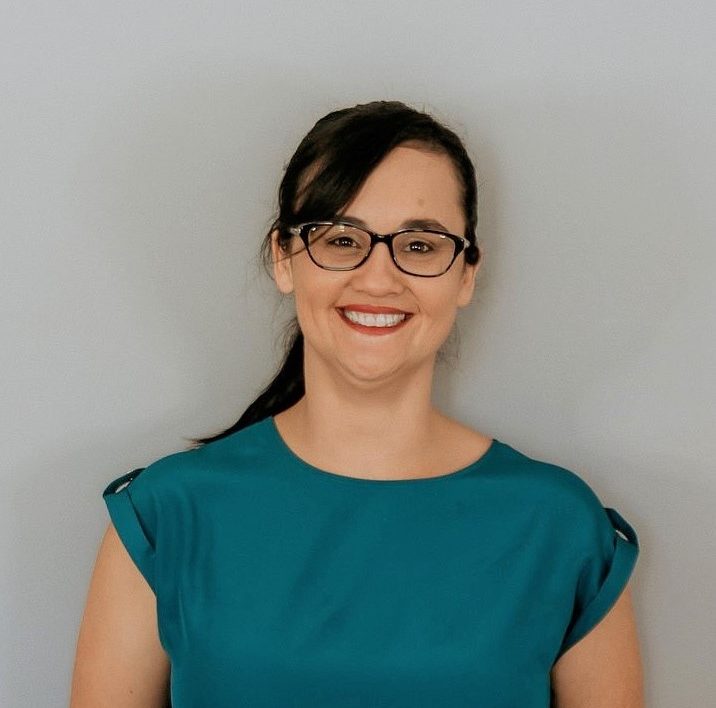Chantelle Turner is a qualified Pharmacist, Leader, Mentor, and Coach at Claims Pharmacy. Learn more about her in our spotlight interview.
What is your role at Claims Pharmacy?
First and foremost, I am one of many Medicine Review Specialist’s who is tasked with the job of providing independent medicine reviews for injured people. Within this role, I see it as my responsibility to have meaningful conversations with treating and prescribing health professionals that aim to minimise the risks associated with medication use, look for opportunities for medication rationalisation and identify pharmacological and non-pharmacological treatments that may be appropriate to improve the injured person’s quality of life and recovery.
My second role is to onboard and mentor all new Medicine Review Specialist’s at Claims Pharmacy. In this role I not only ensure that Insurers receive high-quality reports but to also support the Pharmacist’s as they learn to apply their expertise at a different point in the treatment supply chain.
What do you like most about pharmacy?
Its unique position in healthcare. Pharmacists can be positioned in a myriad of places within the healthcare supply chain. From the first port of a call at your local Pharmacy, to when you are admitted to hospital or you are in your home and your medications need to be reviewed, a Pharmacist will be there. The care you will receive will be empathetic with a focus on quality of life and quality use of medicines. Once again, this balance of relationships and clinical knowledge is what I find most enjoyable.
Tell us why pharmacy is an important part of an Insurance claim. And what are some of the dangers people should be aware of?
Pharmacist’s are an important part of any Insurance claim as medication can either help or hinder the recovery process. Just because something is prescribed today, does not mean it is therapeutically relevant or appropriate forevermore. Sadly, sometimes due to the lack of continuity of care or simply the familiarity of the prescriber with an injured person, the necessity for the continuation of high-risk medications such as opioids and benzodiazepines is often not reviewed as regularly as it should. This is when misuse, dependency or abuse can really take hold. As such, I think the early intervention of Pharmacist’s in insurance claims is key to minimising these types of dangers associated with medication mismanagement. Additionally, early intervention, even in claims that are tracking positively can work to assist in ensuring that overall health and wellness is achieved. Medication optimisation and rationalisation should be at the forefront of claim management as any reduction in the risk of secondary conditions is going to improve the outcome for both the Insurer and the injured person.
These conversations, our interventions and review of medicines can optimise pharmacological treatment, prevent adverse effects, drug interactions, hospital admissions or even death. The trained, independent eye of a Pharmacist can not only minimise risk but improve recovery and health outcomes.
What direction do you think the pharmacy and drug industries is heading, particularly within the Insurance sector?
I believe that Pharmacist’s in particular will continue their ever-growing role in the Insurance sector. As time progresses and research continues it is becoming more evident that medications are useful adjuncts in the treatment of various conditions in the insurance space rather than always being a long-term solution. As such, I think Pharmacist’s will continue to supply the industry with their unique skillset that will assist treating health professionals and case managers improve the quality use of medicines and in turn mitigate the risk of secondary conditions associated with medication misuse and improve the outcomes of injured people.
What challenges you about your work and how do you overcome it?
Being an empathic person, sometimes the injured people’s stories or current situations are quite harrowing. Sometimes due to the type of injury, the duration of treatment or the response to treatment thus far, it makes it difficult to be able to suggest appropriate treatment paths moving forward. Generally, I work to overcome these difficulties by having meaningful conversations with the treating health professional that centre on the patient’s overall health and quality of life. I attempt to look wider than the injury at hand. A simple example of this is if there is non-responsive chronic pain, exploring whether the injured persons mental health been reviewed and addressed. Having a patient centred focus allows me to work towards providing reviews that are focussed on recovery and functionality rather than just ‘medicines’.
What do you feel people should know about pharmacy and Claims Pharmacy that they don’t?
I feel that a Pharmacist’s value in the treatment of any patient or injured person can be grossly understated. The Claims Pharmacy brand along with their formidable team of Pharmacist’s can really improve injured people’s recovery outcomes. I have seen this first-hand. A structured approach to the review of medicines involved in the treatment of any injured person can not only work towards mitigating risk but improving recovery outcomes and quality of life.
